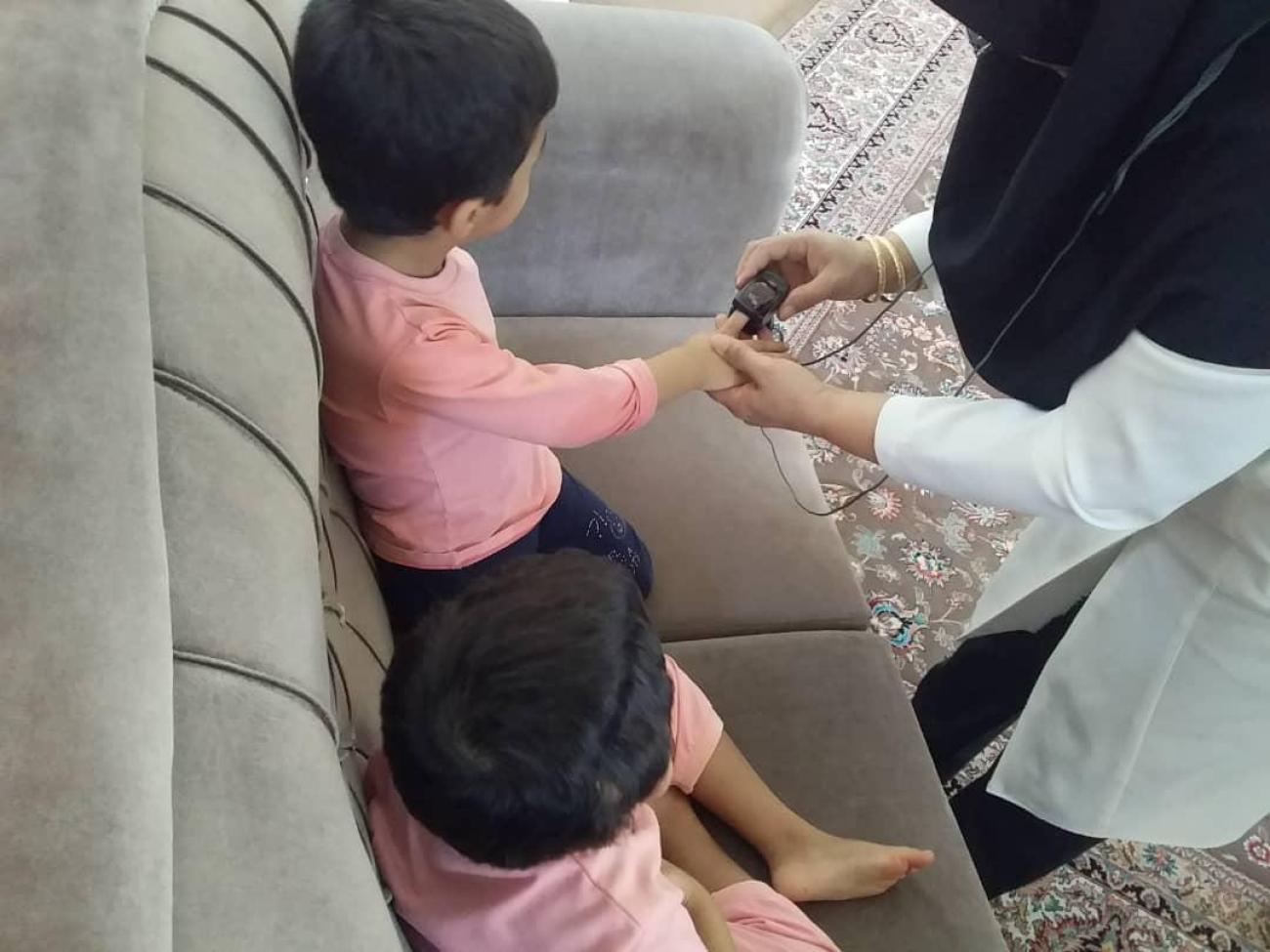UNICEF-procured items help children without effective caregivers living in SWO’s centres

UNICEF has procured pulse oximeters, digital gun thermometers, latex gloves, N95 masks, boxes of diapers and surface sanitizers
UNICEF has procured 421 pulse oximeters, 293 digital gun thermometers, 76,500 latex gloves, 4,000 N95 masks, 2,354 boxes of diapers and 6,640 litres of surface sanitizers which were distributed among SWO rehabilitation centres and nurseries.
“We are really happy that we now have a fingertip pulse oximeter in our centre. In the past, we had to move babies from their beds to the nursing station to measure their blood oxygen and connect them to the medical monitor,” explains a lady with much enthusiasm over the phone, adding “but now, thanks to pulse oximeters procured by UNICEF, our nurses measure the babies’ blood oxygen in their beds, so there is no need to move the baby to another location which reduces the risk of spreading the virus.”
These words came from the director of a nursery for children without caregivers in one of Iran’s southern provinces. The nursery, which is run by the State Welfare Organisation (SWO), accommodates infants and children without parental care up to the age of three. “Procuring diapers for children was also a big help in covering the gap we faced following the COVID-19 pandemic, as the majority of our children are under the age of 1” said the nursery official.
In response to the request of the State Welfare Organization (SWO) and the Ministry of Cooperatives, Labour and Social Welfare (MCLSW) to focus on preventing spread of the virus as a first priority during the COVID-19 outbreak, UNICEF has procured through its central Supply Hub in Copenhagen, 421 pulse oximeters, 293 digital gun thermometers, 76,500 latex gloves and 4,000 N95 masks and locally procured 2,354 boxes of diapers and 6,640 litres of surface sanitizers which were distributed among SWO rehabilitation centres and nurseries, benefiting children living with disabilities and children without caregivers in 31 provinces. These items were procured with funds from the government of Japan, UNICEF’s Global Humanitarian Thematic Fund (GHTF) and the Korean Committee for UNICEF.
In the context of the COVID-19 pandemic, the already-existing vulnerabilities of families and communities are expected to increase with a double impact on children. The director of a nursery for children without caregivers in an eastern province of Iran says that, following the COVID-19 pandemic, the number of new children admitted to the nursery has increased due to heightened tension and new harms emerging in at-risk families. “With UNICEF-procured health and protective items, we now feel more secure about preserving the health of our children, both mentally and physically, during the COVID-19 outbreak,” says the nursery director, adding that the nurses of the centre routinely check the warehouse to ensure there are enough sanitizing items, during the time of the pandemic.
There are groups of children who require extra care and support during the COVID-19 pandemic and lockdown, such as children living with disabilities who have been dealing with the challenges of moving around in society even before the pandemic. The director of an SWO Rehabilitation Centre for children living with disabilities and without caregivers in a central province of Iran says they have installed playground equipment and film-screening facilities in the centre to make up for limitations in taking out the children for recreational activities. “Now that we have pulse oximeters, we measure the blood oxygen and temperature of our children twice a day, once in the morning and once in the evening. This is such a relief. Thank God, none of our children has been infected with COVID-19,” says the director.
Apart from the above-mentioned procured items, UNICEF is also providing parenting packages and capacity-building programmes for social workers to improve the quality of service provision to vulnerable children.

